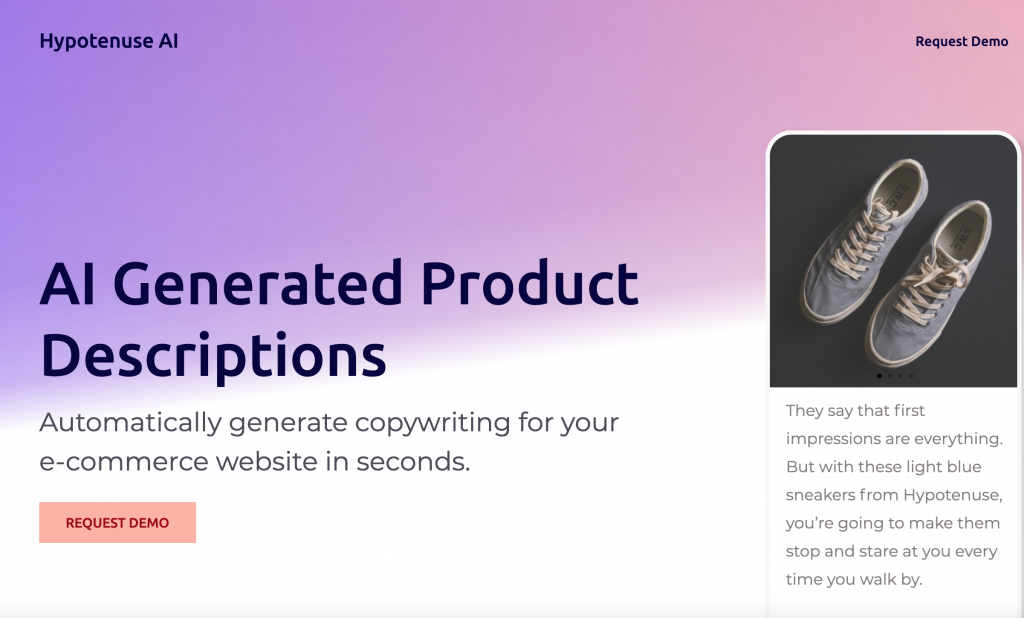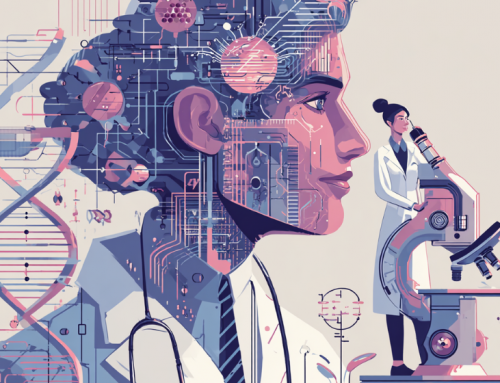
AI may be able to sell more consumers on products with its creative marketing language.
AI Copywriter Impresses Agencies with Ability to Boost Language
A lot of interesting vertical market products have come to life over the past few years, but the magic AI brings to most businesses seems to be only limited by what the human mind can conceive. Techcrunch.com published a story recently introducing Hyptenuse AI, the copywriter.
“Imagine buying a dress online because a piece of code sold you on its ‘flattering, feminine flair’— or convinced you that ‘romantic floral details’ would outline your figure with ‘timeless style.’ The very same day your friend buys the same dress from the same website but she’s sold on a description of ‘vibrant tones,’ ‘fresh cotton feel’ and ‘statement sleeves.’
This is not a detail from a sci-fi short story but the reality and big picture vision of Hypotenuse AI, a YC-backed startup that’s using computer vision and machine learning to automate product descriptions for e-commerce. It’s not easy getting to write copy that will appeal to dress buyers in the Midwest of America or even Europe. The same dress must be presented in different ways and descriptions.
One of the two product descriptions shown below is written by a human copywriter. The other is by Hypotenuse AI. It’s hard to tell which is which. 
After helping a friend write ad copy for vegan soap, Wong recognized how hard it was to generate effective copy that wasn’t already being overused by other advertisers.
Wong had been working for Amazon as an applied machine learning scientist for its Alexa AI assistant, so he was able to take on the task.
“I decided to use my background in machine learning to kind of automate this process,” Wong said. “And I wanted to make sure I could help other e-commerce stores do the same as well.” He left his job at Amazon in June to go full time on Hypotenuse.
He said the tech is a “completely neural network-based, natural language generation model.”
Digital Personal Shopper
The initial idea was to build a “digital personal shopper” to personalize the e-commerce experience. But the team realized they were getting ahead of themselves. “We only started focusing on this two weeks ago — but we’ve already started working with a number of e-commerce companies as well as piloting with a few copywriting companies,” Wong said about his initial shift.
Given the chaotic sprawl of Amazon’s marketplace, where product descriptions can vary wildly from extensively detailed screeds to the hyper sparse and/or cryptic, there could be a sizeable opportunity to sell automated product descriptions back to Wong’s former employer.
Wong is a 100% believer in AI copywriting and gives several reasons why.
“In a way it’s sometimes even better than a human because humans tends to fall into very, very similar ways of writing. Whereas this — because it’s learnt so much language over the web — it has a much wider range of tones and types of language that it can run through,” he adds.
Wong says the tool won’t necessarily take away jobs but will enhance the ability of people to fine-tune their work.
“It helps them spark creativity when you produce the description but that last step of making sure it is something that exactly the customer wants — that’s usually still a final editor check,” Wong says, advocating for the human in the AI loop. “It only helps to make things much faster for them. But we still make sure there’s that last step of a human checking before they send it off.”
That’s good news for editors, but some copywriters might be looking for work soon. It will be interesting to see just how far and how many customers Hypotenuse AI can reach. Stay tuned.
( “A” was the Hypotenuse AI copy)
read more at techcrunch.com







Leave A Comment